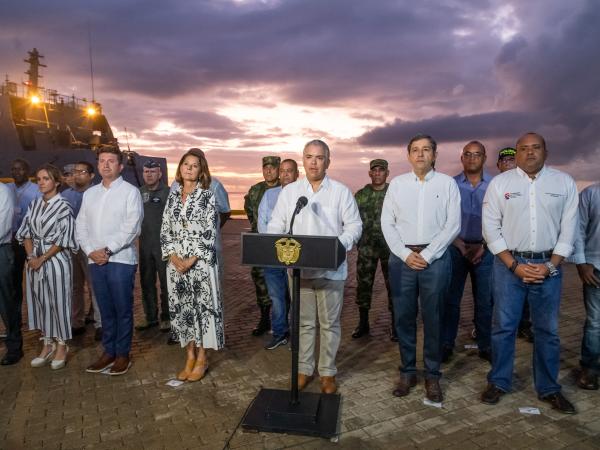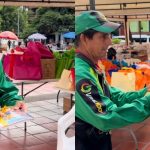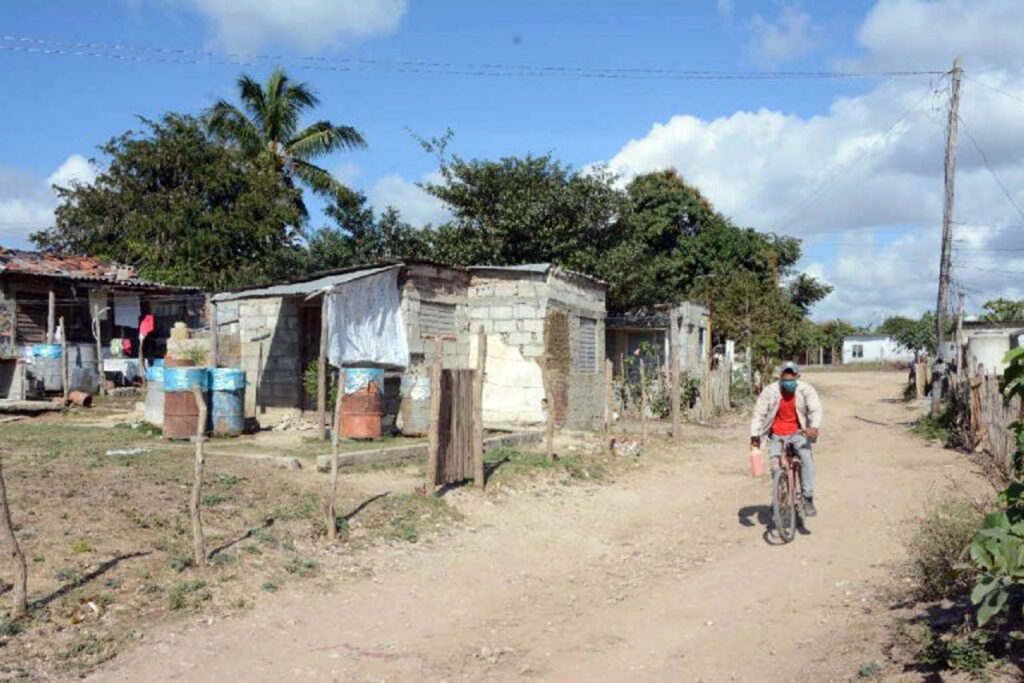Despite the fact that the International Court in The Hague ordered Colombia to cease its “interference in the waters” of Nicaragua, the ruling does not affect the country’s sovereignty and, on the contrary, is interpreted by the National Government as a “small scolding for some operations of the Navy in some area”, that in any case they would not cause “major violations of international law and did not attribute any consequence to them.”
(Court says that Colombia “violated the sovereign rights of Nicaragua”).
This was stated by Carlos Gustavo Arrieta, Colombia’s agent before the International Court of Justice (ICJ), who interpreted the verdict as a decision that allows “maintain freedom of navigation in the area and the presence of the Navy.”
“We have achieved what was essential for Colombia, which was to maintain freedom of navigation in the area and the presence of the Navy. Maintain the integrity of the archipelago, and recognize the Raizal community so that they could fish in the area. We left very happy.” Arrieta assured.
However, according to Wilfredo Robayo, Professor of Public International Law at the Externado University of Colombiaand director of the Master of Public International Law, the Colombian Government is seeing the full glass in a container that is actually empty.
“The Government is not fully recognizing the reality of the Court’s decision,” Robayo told Portafolio, who assures that in the ruling 8 points were analyzed, of which Colombia won only one, in another neither of the two countries was right, while the other six were won by Nicaragua, that, in any case, it was recommended to seek bilateral agreements on the situation of the Raizal community, so that it can access and exploit its traditional fishing banks in Nicaraguan waters.
(This is how Colombia ruled on the ruling of the Court of The Hague).
For the expert, the actions of this government, as well as that of the previous ones, counting that of Pastrana, Uribe and Santos, have been questionable given the lack of a foreign public policy on this point, and what remains now is to comply with the ruling .
“The decision made by the Court is unappealable, so the only way left for Colombia is compliance with the ruling,” Robayo adds.
It also considers that compliance with the order could lead to a dialogue with Nicaragua, if it so decides.
RIGHTS OF COMMUNITIES
The Colombian delegation had filed counterclaims against Nicaragua, including one for violating the rights of communities that inhabit those islands and practice artisanal and subsistence fishing.
That claim, however, was not admitted by the court, which instead called for a negotiation between the two countries to define the scope of the fishing activities of those communities.
The judges indicated that they do not know of sufficient evidence to show that artisanal fishing is an ancestral activity in these communities.
According to ICJ President Joan Donoghue, Colombia failed to demonstrate that these communities have fishing rights in waters that are now under the jurisdiction of Nicaragua.
However, Duque, accompanied by Raizal leaders in San Andrés, celebrated that the court did not deny that community the possibility of continuing to sail “until reaching the fishing banks that they have and have had historically.”
The ICJ also dismissed a claim by Nicaragua over Colombia’s alleged issuance of oil exploration permits.
However, it pointed out in its recitals that Colombia “has violated its international obligations” for interfering in fishing activities and scientific research in waters under the jurisdiction of Nicaragua.
(Colombia defended itself against Nicaragua in The Hague).
For Ricardo Abello, professor of International Law at the Universidad del Rosario in Bogotá, the Colombian ruling party has reason to celebrate the court’s decision, which only made “reference” to three of the more than 50 arguments of Nicaragua.
“The wording of the sentence is apparently very harsh for Colombia”, but “not in its effects”. “It is favorable that Colombia does not have to pay any type of compensation”he explained to AFP.
RIGHT ADJUSTMENT
In its lengthy ruling, the ICJ also considered “out of accordance with customary law” a decree adopted in Colombia on the so-called Integral Continuous Zone in that region.
Colombia, the judges pointed out, has the right to establish a contiguous zone around the affected islands, but added that the decree did not conform to customary law (based on experiences and accepted customs).
It also considered that the Nicaraguan intention to establish a linear territorial limit was not in accordance with customary law, considering that it affects the right of navigation and overflight for Colombia.
Regarding the 2012 ruling, Colombia had warned on that occasion that it would be complied with but not implemented, and then the country withdrew from the Pact of Bogotá, an instrument that precisely recognizes the jurisdiction of the Court in The Hague for this type of controversy.
The International Court of Justice, the main judicial body of the UN system, was created in 1946 to resolve disputes between states. Countries are obliged to implement ICJ rulings, which are final and therefore cannot be appealed.
BRIEFCASE
With information from Agencies
















